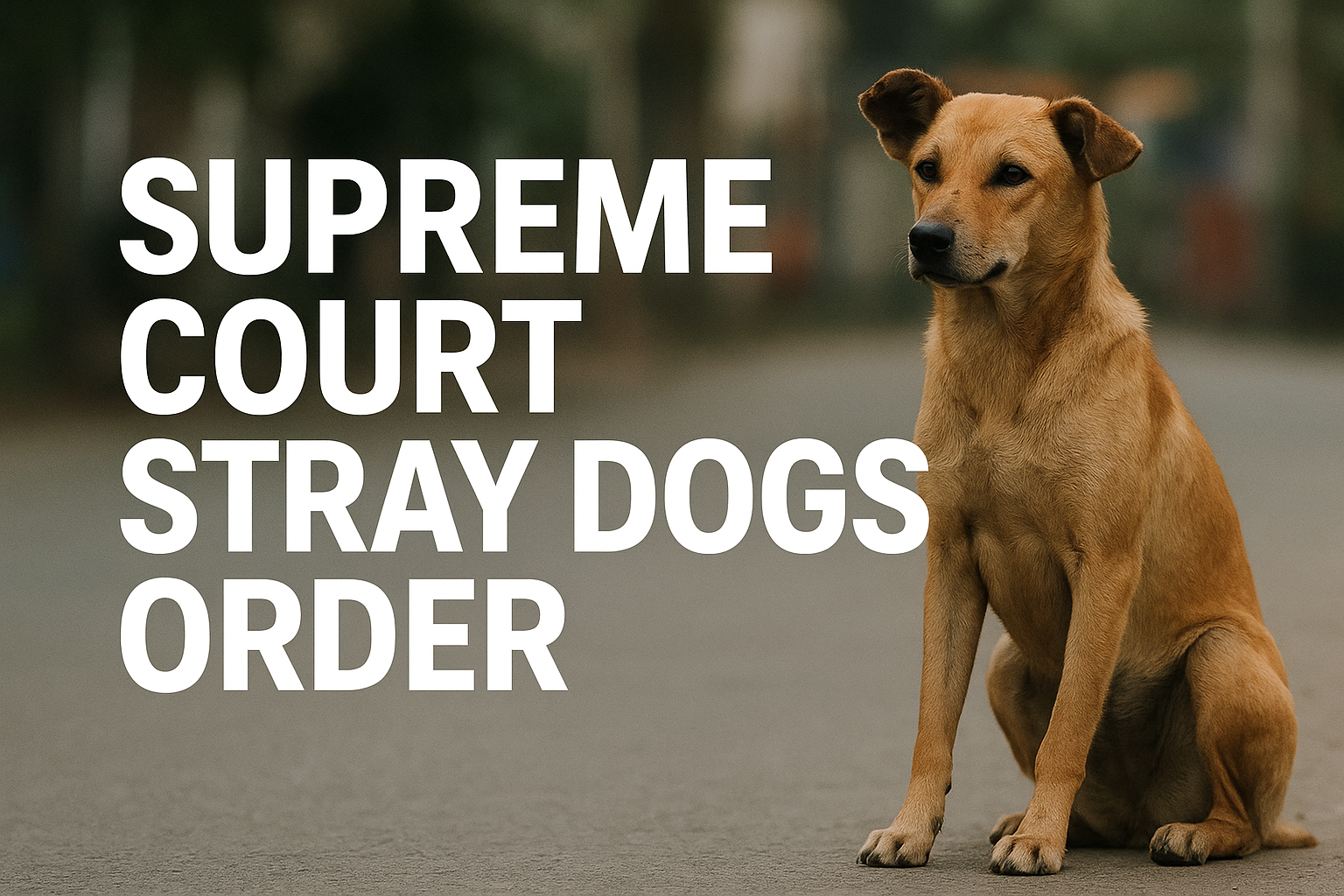The Supreme Court stray dogs order has sparked a nationwide debate. On Monday, the apex court directed Delhi-NCR authorities, civic bodies, and the administrations of Noida, Gurgaon, and Ghaziabad to pick up stray dogs and move them to designated shelter homes. This directive aims to curb the rising number of dog bite incidents while setting up proper infrastructure for their care.

Tamil Nadu Implements the Supreme Court Stray Dogs Order
Tamil Nadu’s Municipal Administration Minister, K. N. Nehru, confirmed that the state will fully implement the Supreme Court stray dogs order.
“Dog bite menace is worrisome for us. This is a good opportunity for us. We will implement the order across corporations and municipalities,” Nehru stated.
Key highlights of Tamil Nadu’s plan:
- Stray dogs will be relocated to shelters after vaccination and sterilisation.
- No return-to-street policy after treatment.
- Action will be taken against activists obstructing the process.
What the Supreme Court Stray Dogs Order Directs
The SC ruling mandates:
- Shelter capacity for 5,000 dogs in Delhi-NCR within 8 weeks.
- Proper staffing for sterilization and immunization programs.
- CCTV monitoring to ensure dogs are not released back into the streets.
- Strict legal action against obstruction of municipal duties.
The order came after a surge in dog bite cases, particularly in urban areas, raising concerns about public safety.
Mixed Reactions from States and Leaders
Karnataka’s Opposition
Karnataka Chief Minister Siddaramaiah criticised the move, calling it “cruelty, not governance”. He advocated for humane measures such as sterilisation, vaccination, and community care rather than relocation.
West Bengal’s Objection
TMC MP Saket Gokhale wrote to the Chief Justice labelling the order as “inhuman”, urging a consultative approach with animal welfare experts.
Support for the Supreme Court Stray Dogs Order
- The Rajasthan High Court also directed state municipal bodies to remove stray animals from roads.
- Residents’ Welfare Associations in Delhi welcomed the ruling, citing relief from frequent dog bite cases.
- Civic authorities in some regions see this as a step toward better urban safety.
Challenges in Implementation
In Bengaluru, civic authorities admit infrastructure gaps:
- Limited Animal Birth Control (ABC) centres.
- Lack of permanent shelters for large-scale relocation.
- No clarity on the funding model for such projects.
The challenge is compounded by high incident rates. In Karnataka’s Chamarajanagar district, 1,568 dog bite cases were reported in just six months of this year.
Recent Dog Bite Incidents in Karnataka
On Tuesday, two staff members at Bangalore University’s Jnanabharathi campus were hospitalized after dog attacks. Following the incident, the BBMP (Bruhat Bengaluru Mahanagara Palike) has launched an investigation.
The Bigger Picture: Public Safety vs. Animal Rights
The Supreme Court stray dogs order highlights a deep divide:
- Animal rights activists advocate humane, long-term solutions.
- Residents’ groups and civic bodies demand immediate relief from the stray menace.
Whether this ruling will create lasting change or lead to logistical chaos remains to be seen.
Disclaimer
The information in this article is for general awareness only. Policies and implementation may change. Please refer to official government sources or court documents for the most updated information.